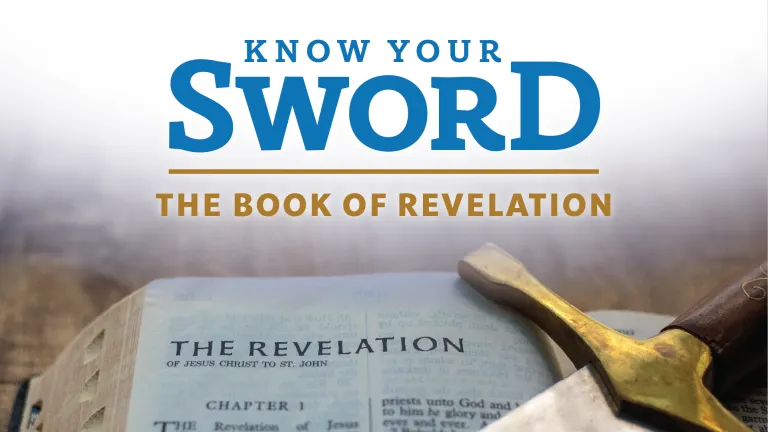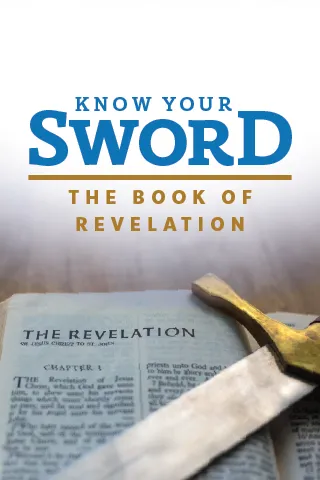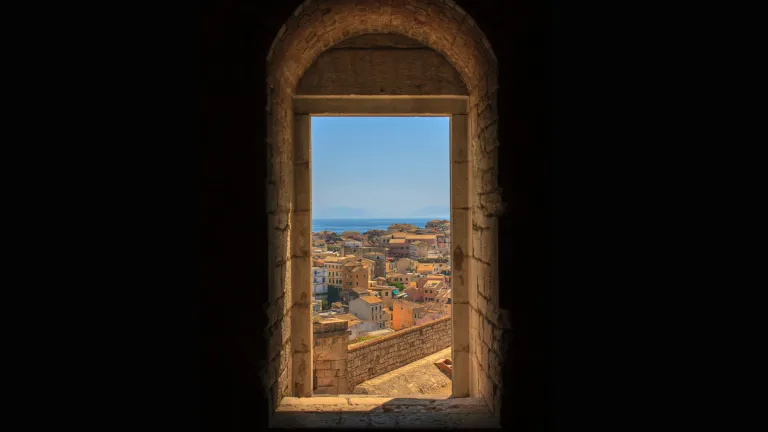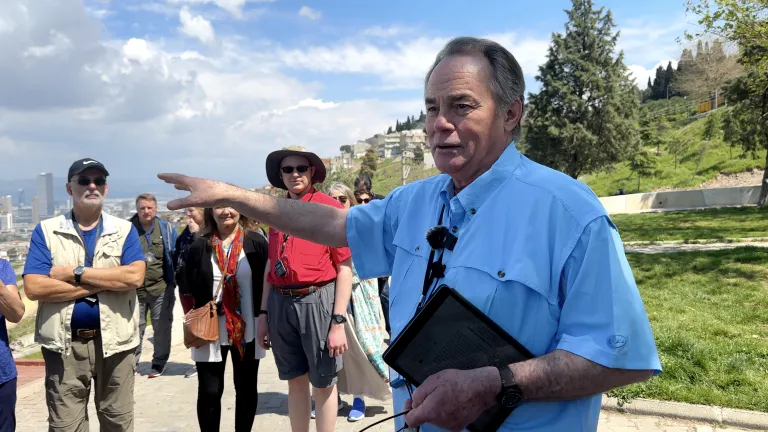Revelation Part 13

The exhortation to Philadelphia was clear: “Hold fast what you have, that no one may take your crown” (Revelation 3:11). This Church was commended by Christ.
The Church in Philadelphia received one of the most encouraging messages in Revelation. The city itself was strategically important. Located about 25 miles southeast of Sardis in the Hermus River valley, it stood on a main highway that connected Smyrna in the west to the interior lands of the east. Because of its location, Philadelphia served as a gateway city, both militarily and culturally. Known later as “little Athens,” it was instrumental in spreading Greek culture and language eastward, and it became a strong fortress city. Economically, it was blessed with a fertile vine-growing district and also supported textile and leather industries, making it wealthy despite its relatively small size.
The city’s origins date back to Attalus II (159–138 B.C.), king of Pergamum, who was so loyal to his brother that he earned the name Philadelphus— “brotherly love.” This spirit of loyalty gave the city its name. But Philadelphia also carried the scars of natural disaster. Situated in an earthquake-prone region, it was nearly destroyed in the massive quake of A.D. 17. In recognition of the emperor’s help in rebuilding, it was renamed Neo Caesarea (“new Caesar”). Later, during the Flavian dynasty in the A.C. 70s, it was renamed again, Flavia. The repeated renaming highlights the city’s political and cultural shifts. Many inhabitants even lived outside the walls after the earthquake for fear of future tremors.
Yet Philadelphia endured. Even as the centuries passed and the surrounding region fell under Turkish Muslim control, the city remained a Christian stronghold until 1392—far longer than the other cities addressed in Revelation. The historian Edward Gibbon admired its endurance, noting how the small Christian community remained faithful even when surrounded and pressured.
In Revelation 3:7, Christ presents Himself as the one “who has the key of David” as also mentioned in Isaiah 22:22. This imagery points to Christ’s absolute authority over access to God’s Kingdom. He opens doors that no one can shut. To this Church He declares that He has set before them an “open door”—symbolizing both salvation and opportunity for mission. Unlike the Church at Sardis, Philadelphia was not dead. Though they had “a little strength,” they remained faithful in their works and did not deny Christ’s name. Their spiritual vitality showed that even small strength, when dependent on God, is enough.
Still, the Church faced opposition. Christ refers to their persecutors as “the synagogue of Satan,” those who claimed to be the true people of God but rejected Christ and opposed His followers (Revelation 3:9). The Lord promised that these adversaries would one day acknowledge that Christ loved His faithful church. Moreover, He assured them of protection in the coming time of trial. This echoes His exhortation in Luke 21:36 to “watch . . . and pray always that you may be counted worthy to escape all these things.”
The exhortation to Philadelphia was clear: “Hold fast what you have, that no one may take your crown” (Revelation 3:11). Perseverance was their responsibility. Crowns in Scripture symbolize victory and reward, and the warning implies that believers must remain steadfast to the end. To those who overcame, Christ promised extraordinary blessings. He would make them “a pillar in the temple of My God” (verse 12). A pillar is a symbol of stability, permanence and honor, which was an especially powerful statement to people who lived in fear of collapsing buildings from earthquakes. Unlike the temporary, shifting security of their city, the overcomer would never again have to “go out” but would be secure forever in God’s presence.
Further, Christ promised to write on them the name of God, the name of the city of God—the New Jerusalem—and His own new name. This signified belonging, identity and eternal citizenship in God’s Kingdom. Just as Philadelphia had been renamed multiple times in honor of emperors, so believers will receive a new and permanent name, not tied to earthly power but to the eternal reign of God. It was a promise of adoption, security and responsibility in the world to come.
The message to Philadelphia is one of encouragement and faithfulness. Though small in strength, they were spiritually alive, loyal and enduring. They were reminded that Christ Himself opens the doors of opportunity and salvation, and that their perseverance would lead to eternal stability and honor. As with all the churches, the message closes with the familiar refrain: “He who has an ear, let him hear what the Spirit says to the churches.”
UYA Team | uya@ucg.org
United Young Adults (UYA) primarily serves the 18–32-year age group for the United Church of God. There are three main areas of contribution to the lives of the young adults: Promoting Spiritual Growth, Developing Meaningful Relationships and Making the Most of Your Talents. The Know Your Sword series is a daily expository message introducing God’s Word from a trusted perspective.




